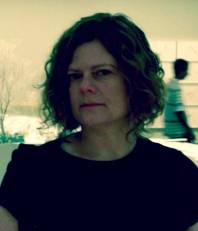
- sstreeby@ucsd.edu
- (858) 534-3067
-
Arts & Humanities Bldg (RWAC)
Room 280
Mail Code: 0410
Professor

SHELLEY STREEBY is professor of ethnic studies and literature. Her research areas include Environmentalisms and Ecologies; Speculative Fiction; Latinx Studies; Black Studies; American Studies; Social Movements and Culture; Media Studies; Digital Humanities; Comics and Visual Culture; Octavia E. Butler Studies; and Archival Methods. She was Director of the Clarion Science Fiction and Fantasy Writers Workshop from 2010-2021. She currently serves as a member of the advisory board for the Octavia E. Butler Seeding Futures exhibit at San Diego's New Children's Museum. She is also lead PI on the Mellon-funded Speculative Environmental Futures project. Other research has been supported by the American Council of Learned Societies (ACLS), the Huntington Library, the University of Oregon, and a Hellman Fellowship
Pronouns: she/they




